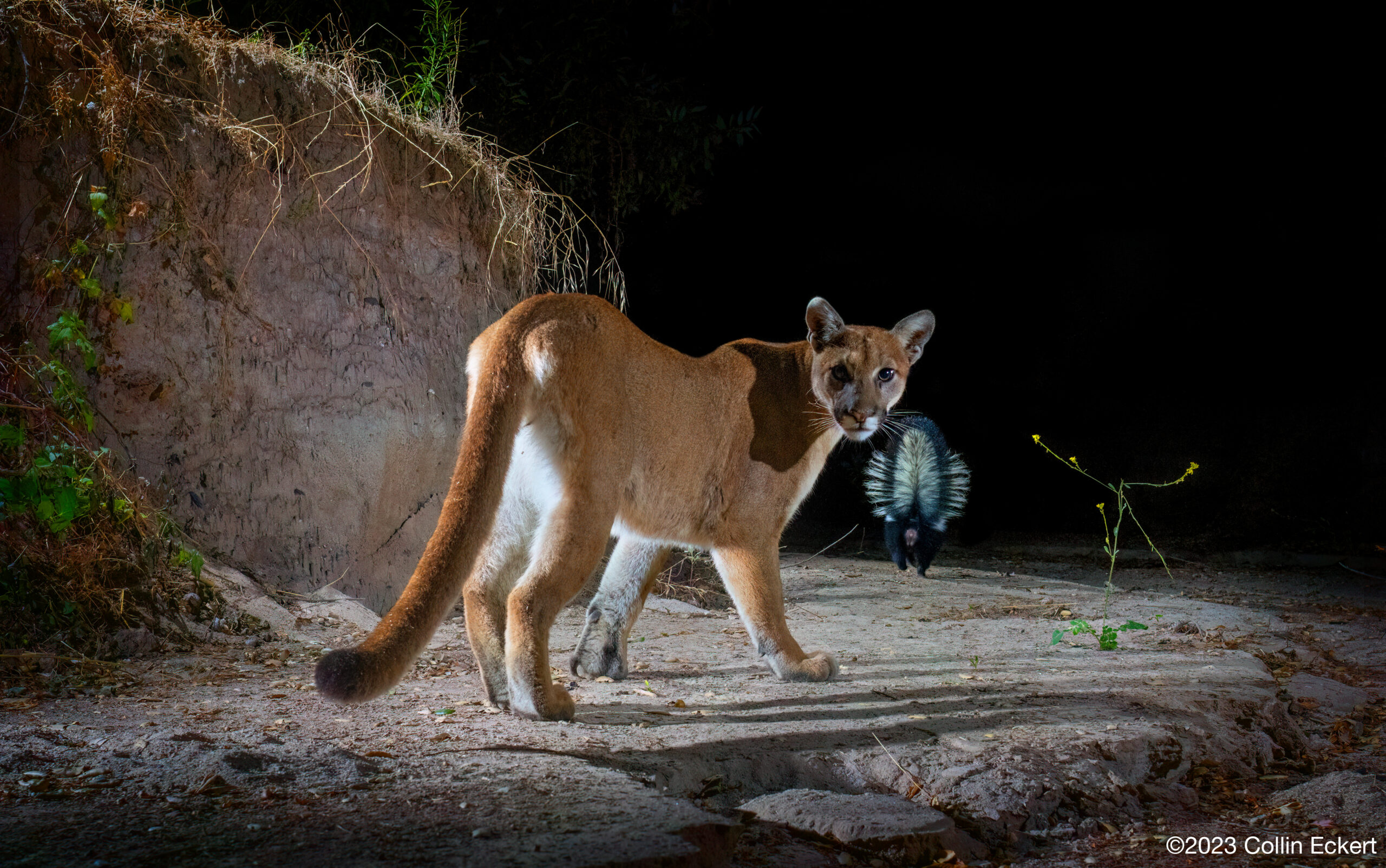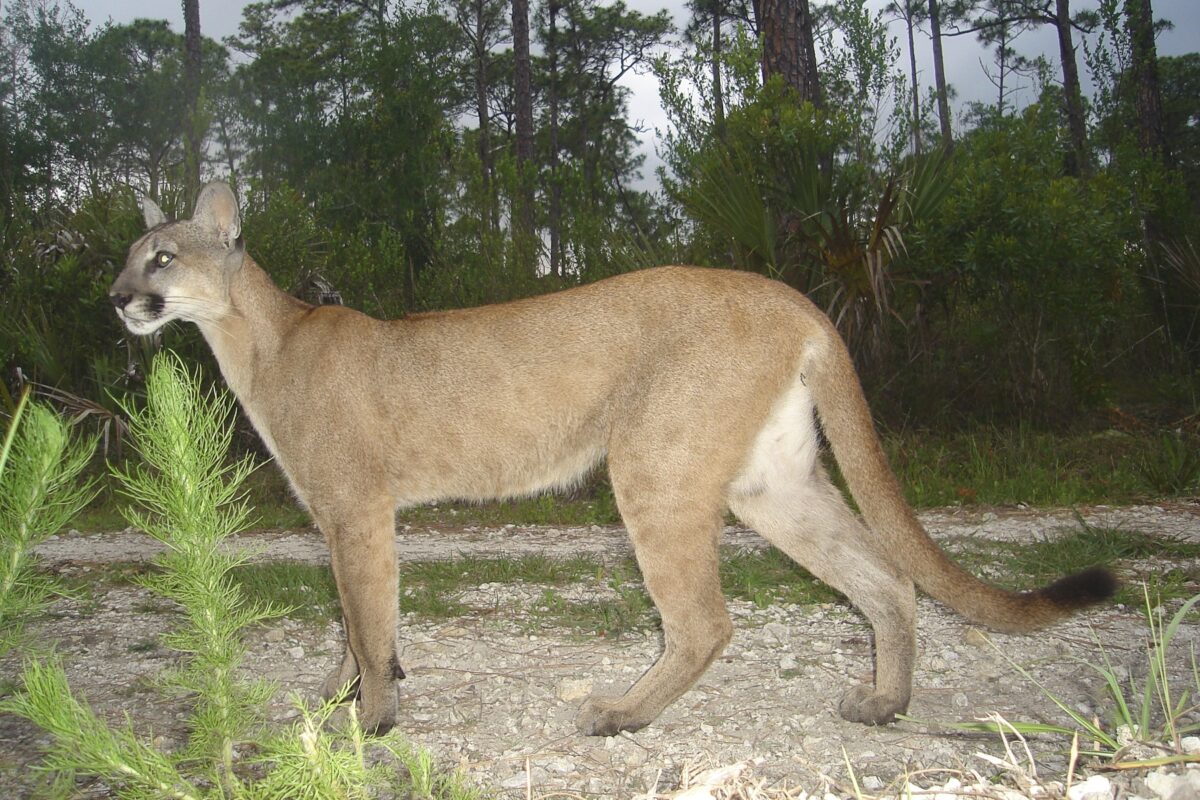
Photo credit: Collin Eckert
By Josh Rosenau, Director of Policy and Advocacy
UPDATE, February 7, 2025:
Update: As we anticipated last November, the results of the recent elections are already shaping up with dramatic results for mountain lions and conservation. As we feared, the Wyoming’s legislature’s ultra-conservative majority is moving legislation that would remove most limits on mountain lion hunting. Nevada’s wildlife commission, perhaps emboldened by partisan gridlock between the governor and legislature, rejected a modest petition to align trapping standards with other states and prevent needless deaths and mangling of unintentionally trapped mountain lions.
On a federal level, the first weeks of the new presidential administration have been chaotic. A freeze on federal payments, despite court orders directing mandated spending to proceed, has harmed all federally funded research. Not only have salaries for postdocs and grants been cut off without notice, but review panels at the NSF and NIH have been halted, delaying and preventing new research, and making it impossible for professors to recruit grad students and plan field seasons. The full scope of those payment freezes are still unclear, with some reporting suggesting that routine payments to state wildlife agencies under laws like Pittman-Robertson may have been delayed, along with payments covering wildlife crossings, parks, and other state and local services that are funded with federal payments.
President Trump and Elon Musk have also pushed federal employees to leave government service, with results that are still uncertain. Trump’s Project 2025 plan called for terminating all federal endangered species specialists and significantly scaling back other federal biologists at agencies including the Fish and Wildlife Service, Forest Service, and National Park Service. If those staff accept the retirement offers emailed to all federal employees, the loss of knowledge could have devastating results for conservation in general, and especially for federally endangered Florida panthers.
We will continue monitoring state legislatures, including Wyoming, Montana, and other states where wildlife laws are being weakened. We will also continue telling members about opportunities to improve wildlife management through legislatures and state agencies. Be sure to sign up on our email lists with your current address to get information from your home state, and to be sure your messages go to your districts elected officials.
……………………………………..
Last week’s election was predicted to be, and will likely prove, among the most consequential in US history. Beyond the presidential election, voters made choices about control of Congress, eleven states chose governors, state legislatures changed hands, and voters considered ballot initiatives that set state and local policies on matters like climate change, housing development and habitat protection, and — of course – mountain lion hunting.
Colorado’s Proposition 127 was a historic effort to extend the protections mountain lions have enjoyed in California since that state’s proposition 117 (and an earlier legislative moratorium signed by then-Governor Ronald Reagan). Hunters, the gun industry, and ultimately a range of politically conservative political action committees invested heavily in opposing that initiative, while Cat’s Aren’t Trophies, the Mountain Lion Foundation, our members and our many dedicated allies worked tirelessly to support it. In the end, voters declined to end trophy hunting for wild cats in Colorado, with 55% voting against the initiative.
In Florida, voters approved a constitutional amendment that enshrines a right to hunt in the state constitution, with 67% voting in favor, well above the required 60% threshold. 23 other states have adopted an amendment of this sort, though the precise details vary. Utah’s Right to Hunt Amendment is the central basis for the lawsuit by the Mountain Lion Foundation and our partners challenging the state’s elimination of hunting limits on mountain lions. These amendments have also been used by wolf advocates in other states to challenge excessive hunting. Florida’s amendment requires, among other things, that “fishing, hunting, and the taking of fish and wildlife” should be the “preferred means of responsibly managing and controlling fish and wildlife.”
Other ballot measures in the states expanded and protected environmental policy. Washington voters shrugged off a referendum that would have eliminated the state’s carbon tax trading program, which aims to reduce climate pollution by 95% by 2050. In California, voters approved $10 billion in bonds to fund parks, environmental protections, clean energy programs, and water infrastructure. Unfortunately, voters in South Dakota declined to adopt limits on carbon dioxide pipelines, allowing the associated climate pollution to continue.
Voters in Washington state maintained strong pro-wildlife leadership. Outgoing Governor Jay Inslee’s appointees to the state’s Fish and Wildlife Commission have been instrumental in changing that body and making the state a leader in wildlife governance reform. He opted not to run for re-election, and the state’s Attorney General, Bob Ferguson, will replace him. Ferguson has been a vigorous defender of wildlife and the environment, and we are hopeful that he will continue the state’s progress on wildlife policy. Several state legislators who had been leaders on wildlife policy have left the legislature, and we will work to see strong leadership of key committees, and to educate them about issues affecting cougars. Washington also elected a new Commissioner of Public Lands to administer the state’s forests and waters. The winner, Dave Upthegrove, has been a champion for managing the Evergreen State’s forests for the benefit of wilderness not just timber companies.
Races for state office in other states produced little change. Utah’s Governor Cox was re-elected even after signing a law opposed by wildlife groups and hunters, which eliminated limits on mountain lion hunting. Montana’s Greg Gianforte was re-elected despite media reports of his having illegally killed a collared wolf, and his proud display of a cougar he killed with a legal license.
In Nevada, hopes for a legislative majority large enough to overcome the state’s Republican governor appeared to fall short by a single seat. Efforts to address wildlife killing contests and needless deaths and maiming of cougars in traps set for other species have been caught in the Silver State’s partisan crossfire. Wyoming voters installed an ultra-conservative governing majority in the state’s House, making it less likely that wildlife advocates will be able to address loopholes that left no way to prosecute a hunter who ran over a wolf with a snowmobile, dragged it to a bar where he tortured it before finally killing it.
Local voters across the country voted to fund public transit. Roads create critical risks to mountain lions, both from loss of connectivity between habitat patches and from direct mortality from car strikes. Increasing public transit rather than road construction is a key element of mountain lion conservation, and these moves away from cars will benefit not just mountain lion survival in areas like Maricopa County, AZ, or Denver, CO, but maintain the paths that mountain lions will one day use to return to areas like Richland County, SC or Nashville, TN.
The presidential election is also likely to have significant effects on wildlife policy, though most direct management of mountain lions falls to state policymakers. President-elect Trump has proposed substantial revisions or outright repeal of the Endangered Species Act, which protects the few remaining Florida panthers. In addition, the conservative agenda Project 2025 proposes eliminating federal scientists who specialize in endangered species and their recovery, which could affect the survival of those last eastern panthers. And it proposes undoing the Antiquities Act, which protects wildlife and cultural resources in National Monuments. In his first term, Trump dismantled key climate provisions, including international treaties and federal offices that support energy efficiency and climate resilience. Some of those changes may require action by Congress, and partisan control of the US House remains unclear, though it is sure to be closely divided. Other changes may lead to litigation in the courts, and judicial appointments may flow more easily through the Senate under its new Republican leadership and under recent precedents that make it easier to overturn strong environmental regulations.
Undoubtedly, this election created setbacks for mountain lions and environmental policy. The Mountain Lion Foundation and our partners remain steadfast in our commitment to our work, which is now even more critical. Regardless of the political winds, Americans need resilient communities that can live comfortably and safely near wildlife. We will continue to fight for the mountain lions that make our wild lands unique and vibrant.



 Facebook
Facebook Twitter
Twitter Send Email
Send Email


